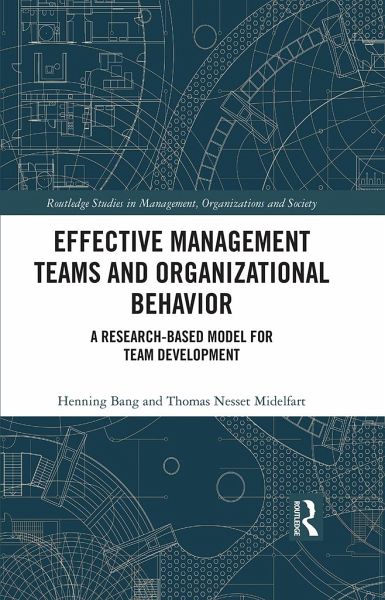
Effective Management Teams and Organizational Behavior
A Research-Based Model for Team Development
Versandkostenfrei!
Versandfertig in 1-2 Wochen
167,99 €
inkl. MwSt.
Weitere Ausgaben:

PAYBACK Punkte
84 °P sammeln!
This book provides a research-based and practical model of the characteristics of effective management teams and enables leaders and management consultants to develop more effective management teams.













